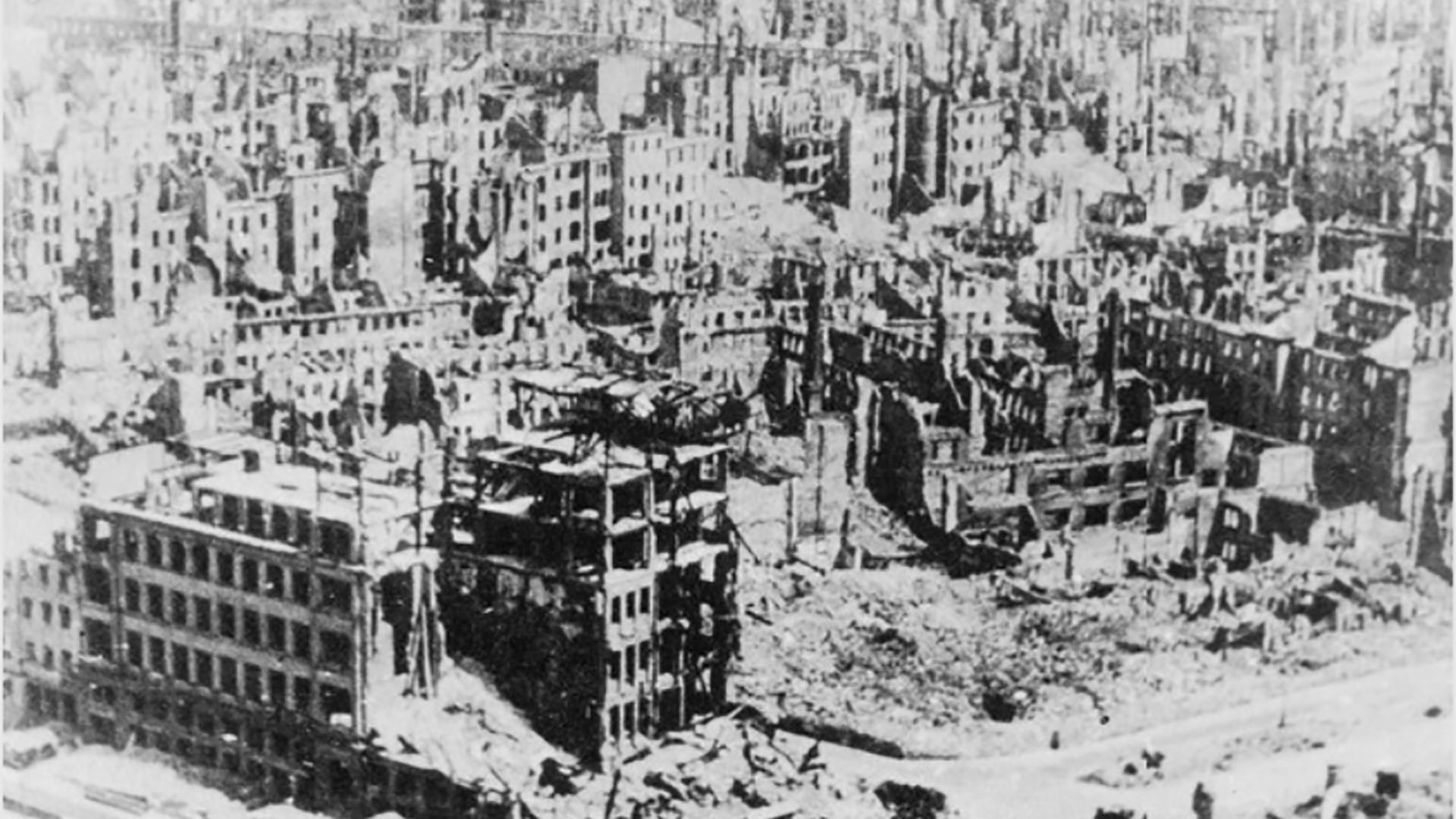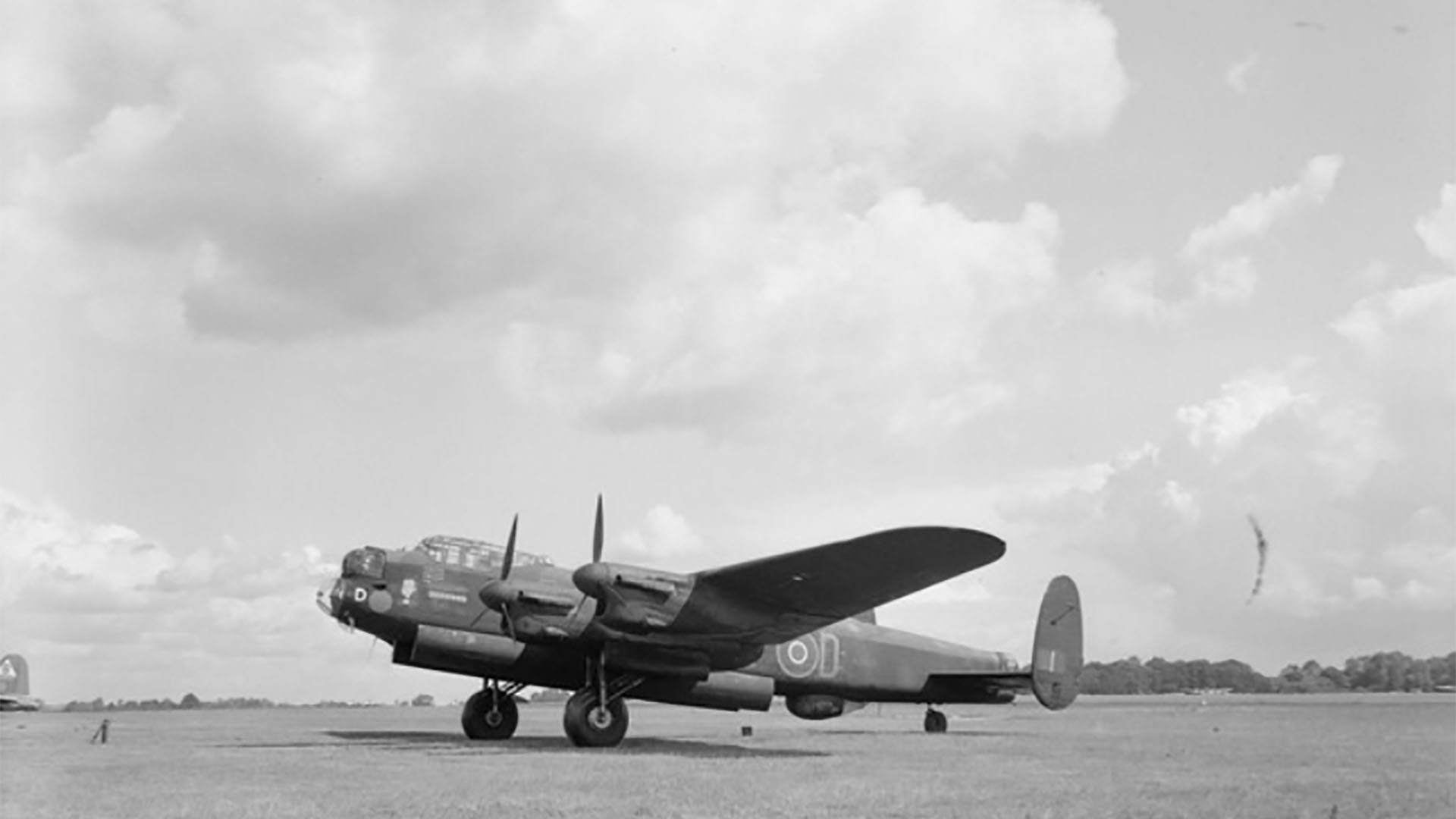Air Commodore James Roy Forsythe served in the Royal Air Force during the Second World War. Known as Paddy, he was born in Belfast on 10th July 1920. His father was managing director of one of the city's linen manufacturing firms.
James received his education at Methodist College, Belfast, and studied law at Queen’s University, Belfast. While at university, he was a member of the University Air Squadron. He enlisted in the Royal Air Force in September 1941. He trained in the United States of America under the Arnold Scheme. With an assessment of “above average”, he remained in America as an instructor.
Forsythe was keen to see combat and do his part in the war effort. In early 1944, he trained as a Bomber Pilot and joined RAF 625 Squadron at a Flight Lieutenant. He flew Avro Lancaster Bombers from RAF Kelstern, Lincolnshire.
Dresden and Operation Manna
On 13th-14th February 1945, he took part in the Bomber Command raids on the city of Dresden, Germany. On the night of 13th February 1945, Forsythe’s crew were in the air for more than 11 hours.
In 2009, he spoke about the controversial firebombing raid on the medieval German city and defended the crews of RAF 625 Squadron:
We were clearly briefed to go for the marshalling yards. We were supporting the Russians, and there was no question of taking out everybody.
Forsythe always maintained the marshalling yards were the only target and the RAF hit them with precision. As well as disrupting enemy rail transport, this action would aid the Red Army which was to launch a ground attack. He suggested an unusually strong wind caused the devastating firestorm, which destroyed much of the city and left tens of thousands dead. In the aftermath of the Dresden Raid, he described Prime Minister Winston Churchill as “cowardly”. He claimed it was Churchill’s decision to launch the attack on the German city but afterward the Prime Minister sought to blame Air Chief Marshall Arthur “Bomber” Harris.
On several raids, searchlights coned his plane as the crew unleashed their bombload on cities such as Stettin and Chemnitz. The Pilot would corkscrew the plane to escape the anti-aircraft fire. Once, flak from an anti-aircraft gun smashed through the nose of the Lancaster killing a Bomb Aimer but Forsythe managed to return the Lancaster to base.
Towards the end of the Second World War, Paddy’s crew rook part in Operation Manna. The operation saw more than 6,500 tons of food dropped to the starving population of the German-occupied Netherlands. The Lancaster crew flew several of these sorties, approaching at heights of around 250 feet. A truce negotiated with German gunners somewhat protected them. In total, Paddy Forsythe flew 32 bombing operations. He received the Distinguished Flying Cross for his actions in the Second World War.

Imperial War Museum Photo: HU 44924 (Part of the Mr JDGC Jones Collection). An aerial view of the devastation caused to the medieval German city of Dresden following firebomb raids from the Royal Air Force Bomber Command and the United States Army Air Force in February 1945. Photo used under Fair Dealing.
Life after the War
In 1946, Paddy married his first wife Barbara who died in 1983. In 1989, he married his second wife in New Zealand. When not in the air, Forsythe was a keen rugby player and devoted much time to developing rugby union within the Royal Air Force. He was chairman of RAF Rugby from 1971-1974 and later became life president. He also served as president of London Irish Rugby Football Club.
After the Second World War, Forsythe joined Transport Command’s Lancastrian Flight carrying mail between England and New Zealand. He attended the Empire Central Flying School and became an instructor. In 1955, he took command of the University Air Squadron at Aberdeen University in Scotland. In 1958, he took command of RAF 16 Squadron flying English Electric Canberra planes from RAF Laarbruch, Germany. Further roles, saw Paddy on the staff of the College of Air Warfare, head of an RAF aid mission to India, before taking command of No. 6 Flying Training School at Acklington, Northumberland. By now, Forsythe was a Group Captain and received a CBE for his work in the development of student pilots. His final roles with the Royal Air Force were in the Air Plans Division, Director of Recruiting, and finally as Director of Public Relations.
Air Commodore James Roy “Paddy” Forsythe died on 29th August 2009 aged 89 years old.
